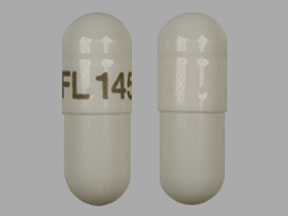Linzess Side Effects
Generic name: linaclotide
Medically reviewed by Drugs.com. Last updated on Jun 30, 2023.
Note: This document contains side effect information about linaclotide. Some dosage forms listed on this page may not apply to the brand name Linzess.
Applies to linaclotide: oral capsule.
Warning
Oral route (Capsule)
Linaclotide is contraindicated in pediatric patients less than 2 years of age; in nonclinical studies in neonatal mice, administration of a single, clinically relevant adult oral dose of linaclotide caused deaths due to dehydration.
Serious side effects of Linzess
Along with its needed effects, linaclotide (the active ingredient contained in Linzess) may cause some unwanted effects. Although not all of these side effects may occur, if they do occur they may need medical attention.
Check with your doctor immediately if any of the following side effects occur while taking linaclotide:
More common
- Severe diarrhea
- stomach pain
Less common
Incidence not known
- Bleeding from the rectum
- bloody, black, or tarry stools
- chest tightness
- confusion
- cough
- decreased urination
- difficulty swallowing
- dizziness
- dry mouth
- fainting
- fast heartbeat
- hives or welts, itching, skin rash or redness
- increase in heart rate
- large, hive-like swelling on face, eyelids, lips, tongue, throat, hands, legs, feet, or sex organs
- lightheadedness
- loss of bowel control
- puffiness or swelling of the eyelids or around the eyes, face, lips or tongue
- rapid breathing
- sunken eyes
- thirst
- trouble breathing
- unusual tiredness or weakness
- wrinkled skin
Other side effects of Linzess
Some side effects of linaclotide may occur that usually do not need medical attention. These side effects may go away during treatment as your body adjusts to the medicine. Also, your health care professional may be able to tell you about ways to prevent or reduce some of these side effects.
Check with your health care professional if any of the following side effects continue or are bothersome or if you have any questions about them:
More common
- Body aches or pain
- chills
- ear congestion
- excess air or gas in the stomach or intestines
- fever
- full or bloated feeling
- headache
- loss of voice
- passing gas
- sneezing
- sore throat
- stuffy or runny nose
Less common
- Acid or sour stomach
- belching
- indigestion
- pain or tenderness around the eyes and cheekbones
- pressure in the stomach
- stomach discomfort or upset
- swelling of the stomach area
For Healthcare Professionals
Applies to linaclotide: oral capsule.
General
The most commonly reported side effects included diarrhea, abdominal pain, flatulence, and headache.[Ref]
Gastrointestinal
Very common (10% or more): Diarrhea (up to 50%), moderate diarrhea (up to 47%), mild diarrhea (up to 43%)
Common (1% to 10%): Abdominal distension, abdominal pain, flatulence, severe diarrhea, viral gastroenteritis
Uncommon (0.1% to 1%): Defecation urgency, dyspepsia, fecal incontinence, gastroesophageal reflux disease, hemorrhoidal hemorrhage, lower gastrointestinal hemorrhage, nausea, rectal hemorrhage, vomiting
Frequency not reported: Lower abdominal pain, upper abdominal pain
Postmarketing reports: Hematochezia[Ref]
Abdominal distention occurred more frequently in patients given 72 mcg (2%) compared to patients given 145 mcg (1%) doses.
Diarrhea was a dose-related side effect. Approximately 33% of patients in a clinical trial developed diarrhea that resolved within 7 days; approximately 80% of patients in the same clinical trial developed diarrhea that lasted more than 28 days.[Ref]
Nervous system
Common (1% to 10%): Headache, dizziness[Ref]
Respiratory
Common (1% to 10%): Sinusitis, upper respiratory tract infection[Ref]
Cardiovascular
Uncommon (0.1% to 1%): Hemorrhoidal hemorrhage, lower gastrointestinal hemorrhage, orthostatic hypotension, rectal hemorrhage[Ref]
Dermatologic
Uncommon (0.1% to 1%): Urticaria
Frequency not reported: Rash
Postmarketing reports: Hives[Ref]
Metabolic
Uncommon (0.1% to 1%): Decreased appetite, dehydration, hypokalemia
Rare (less than 0.1%): Decreased blood bicarbonate[Ref]
Hypersensitivity
Postmarketing reports: Allergic reactions[Ref]
Frequently asked questions
More about Linzess (linaclotide)
- Check interactions
- Compare alternatives
- Pricing & coupons
- Reviews (871)
- Drug images
- Dosage information
- During pregnancy
- Support group
- FDA approval history
- Drug class: guanylate cyclase-C agonists
- Breastfeeding
- En español
Patient resources
Professional resources
Related treatment guides
References
1. Cerner Multum, Inc. UK Summary of Product Characteristics.
2. Product Information. Linzess (linaclotide). Forest Pharmaceuticals. 2012.
Further information
Always consult your healthcare provider to ensure the information displayed on this page applies to your personal circumstances.
Some side effects may not be reported. You may report them to the FDA.

